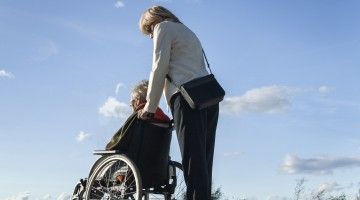Return to work, accommodation and support
IWH has a long history of conducting research on practices, policies and processes that help workers sustainably return to work after an illness or an injury. This page pulls together IWH research and resources on employer supports, job accommodations and modifications, as well as other related issues such as disclosure of disability.
Featured

Research Highlights
How do employment support programs impact the health of young adults with episodic disabilities?
Episodic disabilities can make it challenging for workers to find and sustain employment while managing their symptoms and work demands. An IWH study investigated the health impacts of employment support programs for young adults with episodic disabilities.
Published: April 8, 2024

Research Highlights
Workers are using cannabis to treat work-related conditions, mostly without medical guidance
While cannabis is often used recreationally, there is growing interest in its use for therapeutic purposes, such as for pain, anxiety, depression and sleep problems. Some workers are using cannabis many months following the onset of a work-related condition, mostly without medical guidance.
Published: October 5, 2023

Research Highlights
Gender differences in the impact of eldercare on work
Women are much more likely than men to stop working, to work part time and to temporarily take time off work in order to care for an older relative. These differences are seen even after taking into account factors such as marital status, having children, hours of work, pay level, job tenure, and status as main wage earner in the household.
Published: June 2019

Tools and guides
Supporting return to work among employees with musculoskeletal or mental health conditions: an evidence-based practical resource
This resource synthesizes the research evidence on the practical solutions that workplaces can implement (in conjunction with workers' compensation, insurance and health-care authorities) to support the return to work of employees with musculoskeletal disorders or mental health conditions.
Published: May 2019
Project
Project
Return to work in policing: synthesizing current practices and implementation guidance
An IWH research team is exploring return to work in policing, by combining the best available research evidence on what works with the practices currently being used by Ontario police services that they identify as effective. The project is expected to culminate in a guide to support the implementation of RTW programs in Ontario police services.
Status: Ongoing

At Work article
Women’s work more likely than men’s to be disrupted due to caring for older relatives
Women are 73 per cent more likely than men to permanently leave a job due to eldercare responsibilities. They're also five times more likely to work part time to care for their older relatives, a new IWH study has found.
Published: April 2019
Journal article
Journal article
Work disability management communication bottlenecks within large and complex public service organizations: a sociotechnical systems study
Published: Journal of Occupational Rehabilitation, April 2019
Journal article
Journal article
Perceived role and expectations of health care providers in return to work
Published: Journal of Occupational Rehabilitation, March 2019
Journal article
Journal article
Dissecting the effect of workplace exposures on workers' rating of psychological health and safety
Published: American Journal of Industrial Medicine, March 2019

At Work article
Boomers with and without chronic conditions have similar needs for workplace supports
Yes, older workers with diabetes or arthritis experience fatigue and pain. But they're not that different from healthy peers in how much they need, or use, workplace accommodations, an IWH study has found.
Published: February 2019
Journal article
Journal article
Retirement expectations of older workers with arthritis and diabetes compared with those of workers with no chronic diseases
Published: Canadian Journal on Aging, February 2019
Project
Project
Getting the message right: strengthening RTW communication in B.C.'s health-care sector
Status: Completed 2020